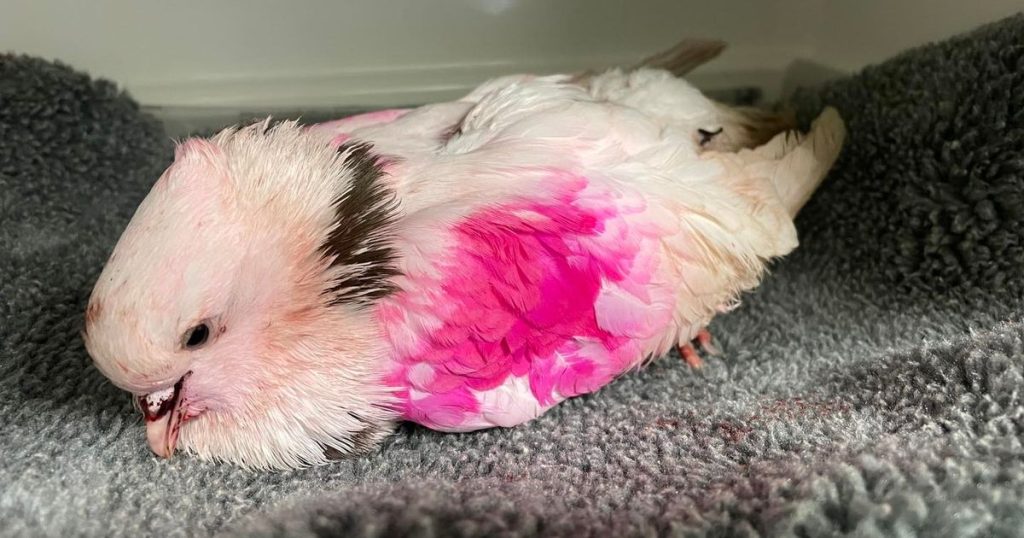A troubling social media trend involving dying birds for gender reveal parties has emerged, resulting in fatal consequences for the birds. The use of birds dyed pink or blue for gender reveals, a practice popular in the US, has spread to the UK, causing harm to animals. The RSPCA has issued a warning about this trend, as the dye used in the process can be toxic to animals. In one tragic case, a pigeon covered in pink dye died in Corby, Northamptonshire, after being severely unwell and malnourished. These dyed birds are more vulnerable to predators and can suffer health issues, impairing their ability to survive in the wild.
The Leicestershire Wildlife Hospital has been on the receiving end of affected birds due to this trend, including a pigeon that was dyed pink and suffered from significant wounds after an attack by a cat. The hospital staff have highlighted the negative effects of this practice, urging people to avoid following social media trends that involve cruelty to animals. These dyed birds are often bred in captivity, making them ill-equipped to survive in the wild once they are released. The toxins in the dye can also cause serious health problems for the birds, resulting in malnourishment and dehydration, leading to a painful death like in the case of the pink pigeon.
Despite the growing popularity of gender reveal parties utilizing dyed birds, animal welfare organizations like the RSPCA are concerned about the welfare of these animals. The dyeing of birds for social media trends poses significant risks to their health and safety, making them easy targets for predators and other birds. The Leicestershire Wildlife Hospital has emphasized the need for responsible animal treatment and raising awareness about the harmful consequences of such practices. The tragic death of Flamingo, a pigeon dyed pink in New York City, serves as a reminder of the importance of avoiding cruel acts towards animals in the pursuit of celebration.
The detrimental impact of dyeing birds for gender reveal events extends beyond physical harm to the animals involved. Such practices reflect a lack of awareness and empathy towards living beings, turning them into mere props for human entertainment. The indulgence in social media trends at the expense of animal welfare highlights a concerning disconnect between humans and the natural world. By perpetuating harmful acts such as dyeing birds for gender reveals, individuals contribute to a culture of cruelty and disregard for the well-being of other species, fueling a cycle of exploitation and suffering.
The tragic stories of dyed birds like the pink pigeon from Corby and Flamingo from New York City shed light on the darker side of social media trends and their impact on animal lives. The unnecessary suffering and loss of these birds underscore the urgent need for responsible behavior and respect towards all living creatures. As organizations like the RSPCA continue to raise awareness and condemn such practices, it is crucial for individuals to consider the consequences of their actions and prioritize compassion and ethics over fleeting moments of online attention. By rejecting harmful trends and advocating for the protection of animals, we can foster a more compassionate and sustainable relationship with the natural world.


